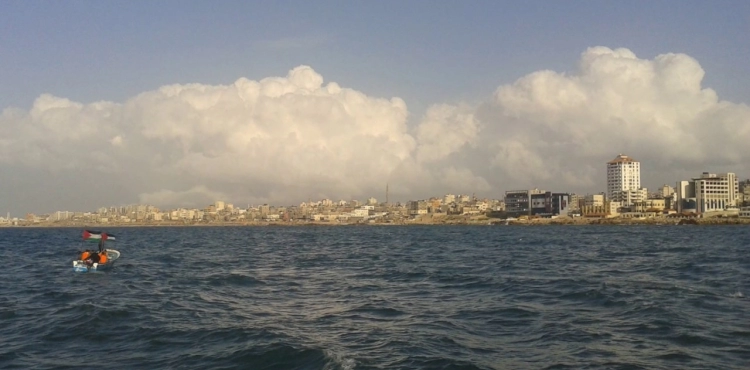The Washington Post published a report on the continued contamination of sea water in the Gaza Strip as a result of pumping sewage into the Gaza Strip , which deprives the residents of the Gaza Strip from their only breathing space.
"The sea was once the only escape for Gaza, and the only site in this tiny enclave, where residents can get out of their besieged lives for an hour. But the ongoing conflict seems to affect every aspect of the situation," the newspaper said in its report on its website. Life, "has deprived them of the Mediterranean as well.
Because of high levels of water pollution, attributable to political and economic turmoil, the 25-mile coastline is now another barrier where barriers are spreading in all its aspects.
Residents still come to the beach to watch the waves, where they stand to taste the salty breeze, but many of them do not swim these days despite the high temperatures that tempt the descent of water.
"This is the only place to breathe in Gaza. There are no options here in Gaza," said 37-year-old Rawya Talenty, a mother of six, while sitting on the beach with a friend throwing into the water. Only we can go. "
After more than a decade of strict land, sea and air blockade imposed by Israel on the Strip to put pressure on Hamas , which has controlled Gaza since 2007, the enclave is suffering from a water crisis arising from the scorched-earth policies. The already weak sewage system in the Gaza Strip.
Wastewater treatment plants also shut down for several hours a day because of power cuts because the West Bank-based Palestinian Authority is trying to undermine popular support for its rival Hamas by halting payments to Israel for fuel used to generate electricity in Gaza.
In turn, Israel practiced force politics. Following the firing of rockets from Gaza into Israel from Gaza last week, Israeli Prime Minister Benjamin Netanyahu ordered that the amount of fuel for electricity generation be halved.
Some studies have estimated that as a result of inadequate treatment, wastewater up to 108,000 cubic meters is now discharged directly into the sea every day, while potable water reserves have decreased significantly.
A public health emergency is now looming for the nearly 2 million Palestinians living in the Gaza Strip, many of them refugees and grandchildren, since the 1948 war.
According to the World Health Organization (WHO), water-borne diseases account for about a quarter of the diseases in the sector.
A 2018 study by Rand Corp was quite clear in its conclusion, predicting an imminent rise in bacterial, parasitic and viral infections, such as cholera, giardiasis and viral meningitis.
"We just sit," said Jabbar Shamallakh, 21, sitting in a plastic chair on the beach one afternoon in the middle of a group of friends.
He explained that it was five years since the last time the water came down. For his friend, Louay Hamouda, 23, it was three years. For Ahmed Arafat, 21, it was about a year and a half. "It is very frustrating. I miss the sea." "I used to waves sometimes. But now I can´t."












